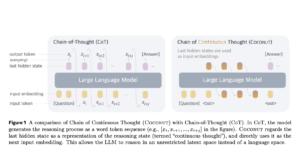Enhanced Microsoft 365 Copilot with AI Agents for Research and Analysis

Recent Updates in Microsoft 365 Copilot: AI-Driven Search and Agent Store Launch
The latest enhancements to Microsoft 365 Copilot include a powerful AI-based search feature and the introduction of a new Agent Store. These developments aim to improve workplace efficiency and productivity.
Features of Microsoft 365 Copilot
The addition of an AI search function specifically designed for businesses addresses previous challenges faced by enterprise search engine providers. This new functionality resolves complexities associated with policy rules across various data sources, ensuring that only relevant documents are displayed.
Jon Friedman, Vice President of Design and Research at Microsoft, explains that Copilot Search integrates advanced search capabilities with AI to yield more relevant and context-sensitive results. This means users can swiftly locate the information they need across numerous applications. Furthermore, Copilot has the ability to summarize documents, allowing users to grasp their content without needing to open each one.
Managing Interactions with Copilot
Concerns about privacy and security regarding large language models searching through company data can be addressed by the Copilot Control System. This system empowers IT administrators and security personnel to govern how Copilot interacts with corporate data.
One notable feature is the Apps and Agents section within Data Security Posture Management for AI, which focuses on monitoring the use of Copilot. In addition, users can access Copilot Analytics and Copilot Studio Agents reports through Microsoft Viva Insights, enhancing data management and security oversight.
New Reasoning Agents
Microsoft 365 Copilot introduces two new reasoning agents: Researcher and Analyst, both based on OpenAI’s reasoning models. While specific models have not been detailed, these reasoning agents simplify complex tasks by breaking them down into manageable steps.
The Researcher agent is tailored for handling multifaceted research tasks. In a demonstration, it created a marketing plan for a fictional smart sneaker, focusing on ergonomic design, health features, and GPS integration, while also providing insights on content strategies and competitive analysis.
On a similar note, the Analyst agent facilitates data analysis. According to a Microsoft employee, this agent utilizes OpenAI’s o3 mini reasoning model, making advanced data analysis easier for users, even those who may not have programming experience. The Analyst can also interpret and explain coding concepts.
Introduction to the Agent Store
Both the Researcher and Analyst agents are accessible through the new Agent Store, which also includes products from well-known partners like Jira, Monday.com, and Miro. Businesses can create custom agents to handle specific tasks or to grant Copilot access to particular data sets.
Furthermore, Copilot has been upgraded with design capabilities, utilizing OpenAI’s GPT-4o for image generation. Users focusing on design tasks will benefit from AI-generated visuals, banners, and marketing copy, reducing the need for creative input.
Another innovative feature is the Notebooks function. Here, users can organize files that Copilot can analyze whenever requested. According to Friedman, these Notebooks centralize all relevant project documents, enabling more focused interactions with Copilot based on this gathered information.
Phased Implementation of New Features
Some Wave 2 features, including the Researcher and Analyst agents, will be available to participants of the Frontier Program immediately. The broader rollout is scheduled to happen progressively until May.
This announcement comes at a time when IT consulting firm Gartner has predicted an “AI paradox” for the upcoming year. While expectations surrounding generative AI appear to be waning due to high failure rates in initial projects, investment in the sector is projected to grow significantly. Gartner estimates that global spending on generative AI will surge past $644 billion by 2025, marking a 76 percent increase compared to 2024.





